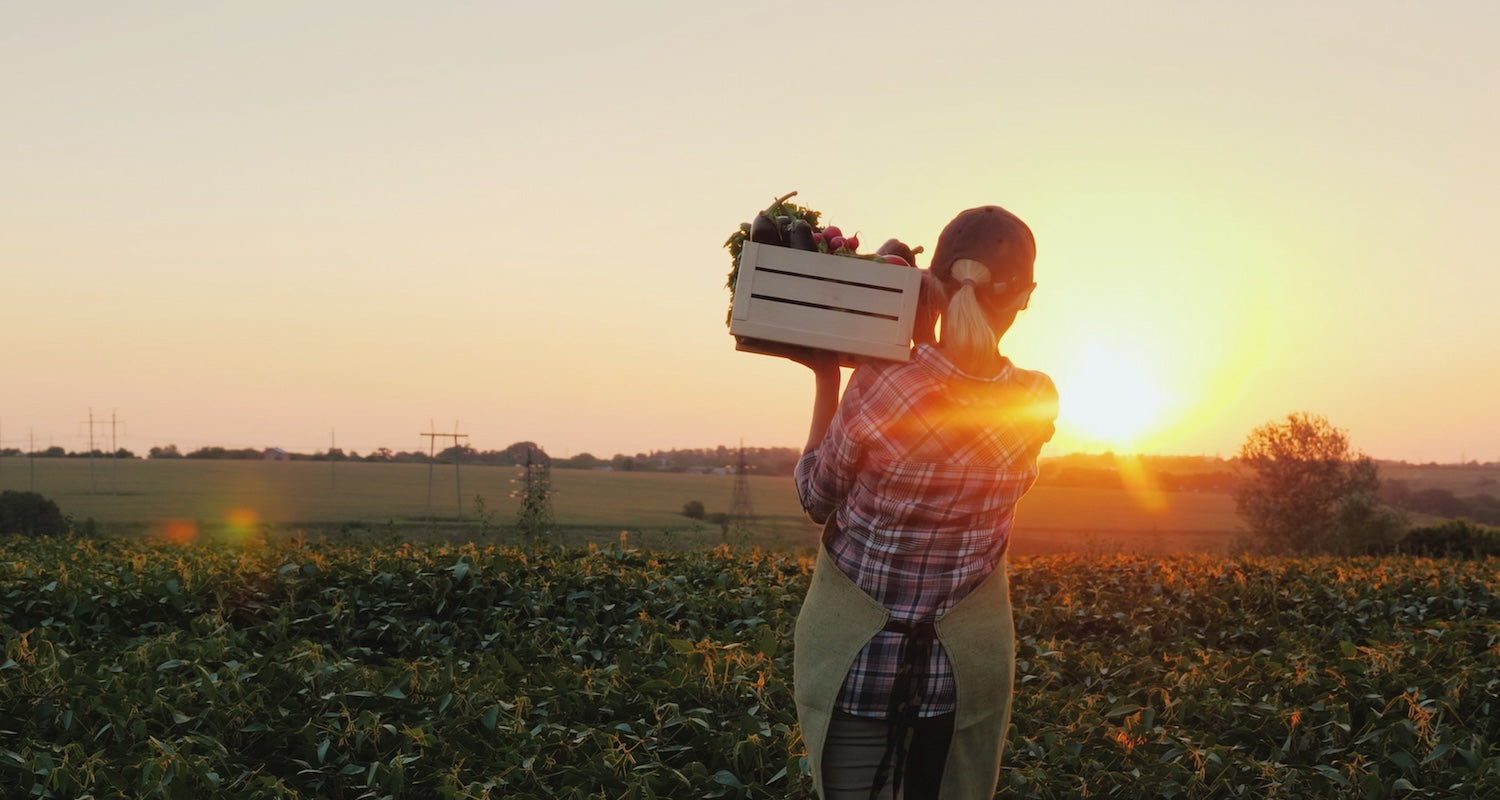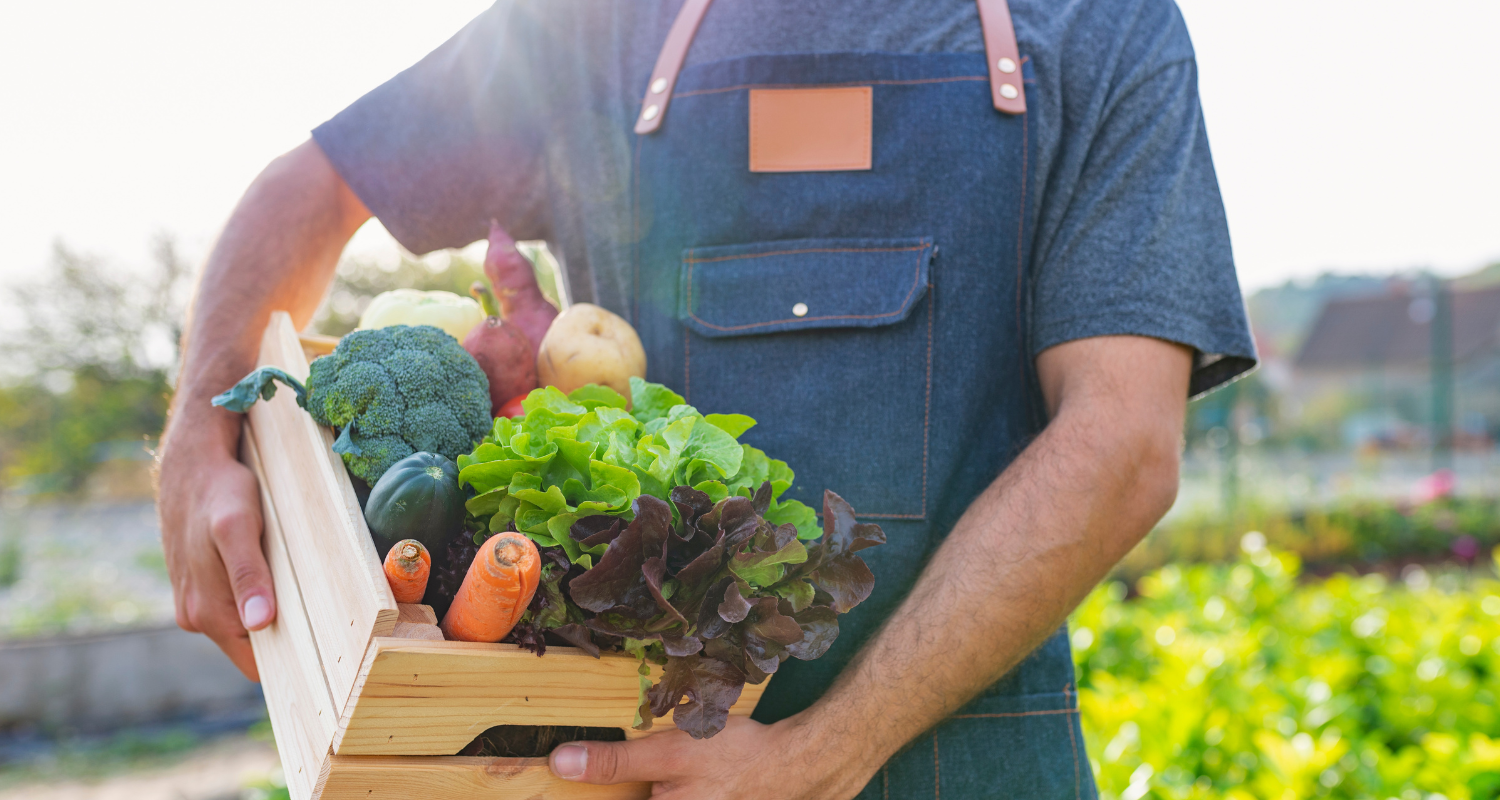
Gut Health in the Modern World: Why It Matters More Than Ever
The World Has Changed. Your Gut Is Still Catching Up.
Over the past five blog posts, we’ve taken you through the essential layers of gut health:
- Blog 1: An overview of the gut and digestion, and what happens when it's out of balance.
- Blog 2: The role of stomach acid and enzymes in digestion and why many of us are low.
- Blog 3: How your gut lining acts as a gatekeeper, keeping harmful substances out.
- Blog 4: The microbiome—trillions of microbes that influence everything from digestion to mood.
- Blog 5: Why real, whole food diversity is the key to feeding your gut (and your health).
But what’s at the root of it all—and what’s constantly working against it?
Modern life.
Your gut was designed to thrive with real food, clean air, and a slower pace of life. Today, it’s navigating a world of ultra-processed foods, chronic stressors, and nutrient-depleted meals. And while your body is brilliant, it needs support to keep up.
Modern Stressors That Disrupt the Gut
From what we eat to how we live, modern life puts your gut under daily pressure. Here’s what’s working against gut health and digestive balance—and why it matters:
🧠 Chronic stress
When you're constantly in go-mode, your body stays in fight-or-flight—slowing digestion, reducing stomach acid, and disrupting microbial balance over time.
🥗 Lack of whole foods
Less than 1 in 10 Americans eat enough fruits and vegetables every day. That means less fiber, antioxidants, polyphenols to feed your microbiome and support your gut lining.
🥫 Ultra-processed foods
Making up more than 60% of the average American diet, these foods are loaded with sugar, additives, and inflammatory oils—but stripped of fiber, nutrients, and enzymes. They feed harmful microbes, trigger inflammation, and chip away at your gut health.
🍷 Alcohol + medications
Regular alcohol intake and common medications like NSAIDs and antacids can disrupt gut bacteria, weaken the gut lining, and reduce stomach acid over time.
🥕 Nutrient-depleted soil
Modern farming depletes soil of vital nutrients, leaving produce with far less magnesium, zinc, and selenium—key minerals your gut and immune system rely on to function
🌍 Toxins in our environment
Plastics, pesticides, heavy metals, and air pollution that we're exposed to daily can stress the gut-liver axis, weaken the intestinal barrier, and disrupt microbial diversity.
💊 Frequent antibiotic use (even in food)
Antibiotics don’t discriminate—they kill both bad and good bacteria. This often leaves microbial imbalances in their wake that are hard to restore.
🏡 Indoor living + over-sterilization
Spending more time indoors and frequently using antibacterial products has reduced our exposure to beneficial microbes in soil, plants, and nature—reducing microbiome diversity.
💤 Poor sleep + late-night screen time
Your gut has a circadian rhythm too. Disrupted sleep, late meals, and blue light at night can throw off digestion, slow gut function, and disrupt microbial balance.

Tip: This isn’t about fear—it’s about awareness. Once you understand the pressures your gut faces, you can make small, powerful shifts that help it bounce back.
Less than 1 in 10 American adults eats the daily recommended amount of fruits and vegetables
Less than 1 in 10 American adults eats the daily recommended amount of fruits and vegetables
Food Is Information—Not Just Fuel
Your body doesn’t just “burn” food. It listens to it. Every bite you take sends instructions to your gut, your microbes, your immune system, and your brain.
- When you eat nutrient-dense whole foods that your body recognizes and thrives on? Your body says: “We’re safe. Let’s heal.”
- When you eat ultra-processed food that the body doesn't recognize? Your body says: “We’re under threat. Stay reactive and inflamed.”
This is why what you eat matters more now than ever to support gut health.
Food as Medicine to Heal Your Gut
You don’t need to overhaul your life—just shift what’s on your plate a little bit at a time. These foods help nourish and rebuild gut resilience:
🫐 Fiber-rich plants
Fuel beneficial microbes and generate short-chain fatty acids (SCFAs) to support your gut lining.
🌈 Deeply colored fruits + vegetables
Deliver polyphenols and antioxidants that calm inflammation and support microbial diversity.
🥣 Fermented foods
Add friendly microbes that promote gut balance and immune resilience.
🍖 Bone broth + collagen
Provide glycine and glutamine—amino acids that help seal and repair the gut lining.
🐟 Omega-3 fats
From fatty fish, chia, flax, and walnuts—these reduce gut inflammation and support cell membranes.
🌿 Bitters + herbs
Stimulate stomach acid and enzymes for smoother digestion and better nutrient absorption.

Read more about the gut-healing power of whole foods in our last blog, Whole Foods, Whole Microbiome – Why Diversity is Key to a Healthy Gut.
Your body is always trying to move toward balance. Small, consistent changes in habits will have a big impact on overall gut health.
Your body is always trying to move toward balance. Small, consistent changes in habits will have a big impact on overall gut health.
Small Shifts = Big Impact
You don’t need a perfect diet, routine, or supplement stack to support your gut—you just need to be intentional.
The truth is, your body is always trying to move toward balance. And small, consistent habits can have a profound effect on your digestion, microbiome, gut lining, and overall vitality. It’s less about overhauling your life and more about stacking simple wins.
Eat slowly and mindfully
Digestion begins before your first bite. Sitting down, breathing deeply, and chewing thoroughly activates “rest and digest” mode, setting you up for better stomach acid and enzyme release.
Prioritize whole, unprocessed food
Real food provides the fiber, enzymes, polyphenols, and nutrients your microbes (and gut lining) need to thrive. Think: fruits, veggies, legumes, grains, nuts, seeds, herbs, and spices.
Get outside daily
Exposure to microbes from soil, plants and fresh air shapes a more resilient microbiome. Even a 10-minute walk in a park can make a difference.
Move your body regularly
Gentle movement (like walking, stretching, or yoga) stimulates digestion, reduces stress, and supports microbial diversity.

Support digestion with enzymes, bitters, and fiber
Especially during transitions (like diet changes or periods of stress), added digestive support—like the enzymes and gut-soothing herbs in Digest + Debloat—can help your body break food down more efficiently and ease discomfort.
Take breaks from alcohol, sugar, and ultra-processed snacks
These stress your gut lining, feed inflammatory microbes, and disrupt microbial balance. You don’t need to cut them out entirely—but give your body regular breaks to recalibrate.
Add fermented foods and hydrate well
Sauerkraut, kimchi, yogurt, kefir, and other fermented foods add beneficial microbes and support digestion. And water? It’s essential for motility and keeping your digestive system running smoothly.
Your Gut Wasn’t Built for Modern Life—But It Can Heal + Adapt
Your digestive system is resilient. With the right inputs, it wants to heal. And the best part? You don’t need to be perfect. Real food, daily habits, and a little bit of patience go a long way.
This wraps up our Gut Health Series—but it’s just the beginning of your journey. Because when your gut is supported, everything feels more in sync: your energy, your skin, your focus, your mood, your immune health.




Leave a comment
This site is protected by hCaptcha and the hCaptcha Privacy Policy and Terms of Service apply.